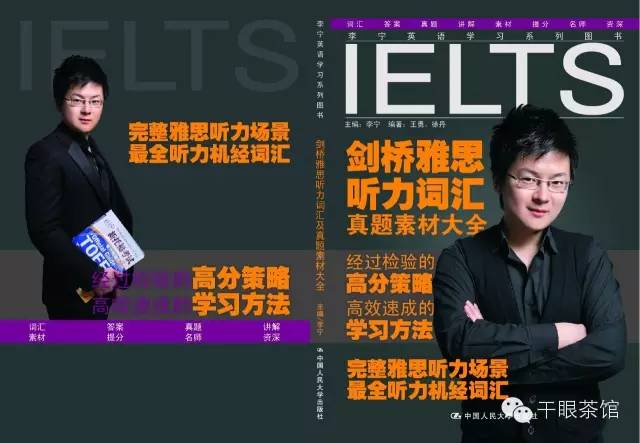英语口语
文法,词法,句法
● 在英语口语中假如听不懂,用Pardon一词的用法
()What? 中式英语
()Pardonplease 中式英语
()I begyour pardon please? 中式英语
(√)Pardon?
(√)I’msorry, what did you say?
(√)Could yousay that again please?
● 如何问别人名字?
()May I know you name?
()May Ihave your name? 太正式,母语国家一般不这么说。
()How shallI call you?
(√)What’syour name?
(√)Tell meyour name please?
●英语口语:问你住在哪里?注意时态:一般现在时
Where are you from?
()I am living inShanghai.
(√)I live inShanghai. 一般现在时即可。
(√)Adistrict from Shanghai, called Xuhui.
(√)I comefrom a place called Shanghai, near Zhejiang.
(√)I comefrom Shanghai, which is one of the largest city in China/which is a vibrant andcosmopolitan city. The economic heart land of China is in Shanghai. The presentpopulation is about 23 millions of people, about 40% of the total UKpopulation.
●英语口语:你喜欢看电影吗?
学生表达:我不常去看电影
()I seldom go to the movies/cinemas.
(√)I don’t go tothe movie very often.
举例说明:这个季节很少下雪。
()We seldomhave snow at this of year.
(√)It doesn’tsnow very often at this time of year.
举例说明:我看恐怖片几乎不会感到怕。
()Seldom doI get scared at horror movies..
(√)It don’t very often get scared at movies. .
●英语口语考题:What do you do in your spare time?
好多学生会回答听音乐,那么如何表达听音乐是:
listento the music还是listen to music
音乐表达:
popmusic/mainstream music主流音乐
alternative music非主流音乐
Brit-pop英国流行音乐
J-pop日本流行音乐
R & B/Rock andRoll/heavy metal/soft rock and ballads抒情慢摇滚
dancingmusic/house(舞//www.58yuanyou.com曲一种)
classical music、jazz、rap
()I likelistening to themusic.
(√)I likelistening to music.
(√)I like tolisten to music. 一般回答
(√)I loveall kinds of music, but especially some love songs and R & B. My favouritesinger is Whitney Houston. 比较好/完整回答。
● 英语口语考题:你将来想做什么工作?
好多学生回答:我想做老师。老师问你,为什么喜欢做老师?学生回答:因为老师很勤奋。
勤奋一词的口语表达:
Diligent: Someone who is diligentworks hard in a careful and thorough way, careful and using a lot of effort 勤勉的/勤奋的, 通常用于“警觉”,“警惕”,多长用于形容士兵,一般不用于形容职员和学生。
Hardworking: If you describe someoneas hard-working, you mean that they work very hard 形容人的努力学习/工作
S原由网tudious: Someone who is studiousspends a lot of time reading and studying books 形容人的勤学的/用功的
英语口语图书馆考题:你喜欢在哪里看书?
回答:我喜欢在图书馆,因为我是个勤奋的学生。
()I likereading in library. Because I think i am diligent.
(√)I likereading in library. Because I think i am very studious.
英语口语图书馆考题:你喜欢你的工作吗?回答:我很喜欢我的工作,我在工作上花很长时间,非常勤奋。
()Surething, I like my job. I spend long hours at my job and are very diligent.
(√)Surething, I like my job. I spend long hours at my job and are very hardworking.
● 英语口语考题回答:Nice的滥用
我喜欢这本电影,它的情节太曲折了。
()I enjoyedthe movie. It was really nice.
(√)I enjoyedthe movie. I t was really action packed.
我保证你会很喜欢我的故乡的。那里的人们非常友好,而且那么有很多历史遗迹。
()I am sureyou will like my hometown. It is very nice.
(√)I am sureyou will like my hometown. The local people are really friendly and the placeis full of historic places.
中国是一个历史悠久的国家。
()China isa nice country.
(√)China isa fascinating country with many contrasts and a long rich history.
我妈妈是一个考虑周到很和善的人。
()Mymother, she is really nice.
(√)Mymother, she is reallythoughtful and kind.
我的房子很舒服。
()My apartmentis really nice.
(√)My apartmentis real//www.58yuanyou.comly cozy and comfortable.
● 英语口语表达:你喜欢夏天嘛?回答:很好一般性/还可以
()So-so
(√)Prettygood/Not too bad/Not bad/Nothing special/Nothing out of the ordinary/Nothing towrite home about(不怎么样)
● Study(学习/攻读)和Studies(学习/学业/研究)在英语口语中的辨析
最近的研究表明中国将成为二十一世纪最强大的国家。
()A recent studiesshowedthat China would be the most powerful nation in the 21STcentury.
(√)A recent studyshowedthat China would be the most powerful nation in the 21STcentury.
我的学业对我自己来说任重道远。
()My studyis really important to me.
(√)My studiesare really important to me.
●英语口语very(很/非常)和really(非常/真正的)的滥用
英语口语考题:这些炸薯条非常好吃。
()Thisfried chips are verydelicious.
(√)Thisfried chips are reallydelicious.
英语口语考题:Party
()We had verygood fun at the party.
(√)We hadreallyvery good fun at the partywww.58yuanyou.com.
英语口语考题:film
()This film was veryamazing.
(√)This film wasreallyamazing.
◆◆◆◆◆◆
Very这个词汇不能一下词汇连用:like, delicious, fun, amazing,awful, terrible.
Very good,good可以替换为词:
awesome; bad;fantastic; incredible; radical; superb; unbelievable; wicked; wonderful
强语气 |
弱语气 |
|
正式语气 |
awfully 非常 |
rather 相当 |
terribly 极;非常 |
||
一般用语 |
extremely 非常;极其 |
quite 有几分;十分 |
very 很 |
||
really 非常;实在 |
||
completely 完全地 |
||
literally 真正地;确实地 |
||
deadly 非常 |
||
非正式用语 |
real 非常 |
fairly 相当;完全地 |
widely 极其;非常 |
pretty 相当;颇 |
|
totally 绝对的;完全地 |
kind of |
|
way 大大地 |
||
just 十分;完全 |
||
plumb完全地 |
||
plenty 充分地;相当地 |
● 英语口语many和a few的表达
我在英语学习上遇到很多困难。
()I am having manydifficulties in English study.
(√)I am having a fewproblems. /I am having lotsof problems.
●英语口语not many和few的表达
我的朋友中没有几个能说德语的。
()Fewof my friendsspeak German.
(√)Not manyof my friend speak German.
我们没有什么机会去练习德语。
()We have fewopportunitiesto practice our German.
(/√)We don’t have many opportunitiesto practice our German.听起来有点奇怪。
(√)We don’thave much chanceto practise our German.
●英语口语:people VS. person
中国有超过13亿的人口。
()There areover thirteen billion personsin China.
(√)There are over thirteen billion peoplein China.
父母亲对我来说是最重要的人。
()My parents are the most important personsin my life.
(√)My parents are the most important peoplein my life.
●英语口语词汇:never的使用。
Never=not ever=at no time=on no occasion;
Never≠ever;
Ever=occasion, occasionally比较好。
()I have everbeen to Britain.
(√)I have beento Britain on occasion/occasionally.
你去过英国吗?用Ever来表达
Have youeverbeen to Britain? 此处的ever通常为副词构成疑问句。
Ever=occasion, occasionally
Have you everbeenkissed? 你有被吻过?
Have you everbeenin love? 你谈过恋爱?
Ever: 表示为“时间连词”
For example:Ever since I started……:自从我开始。。。
e.g: Ever since I startedstudying English, lifein UK has become much easier.
e.g: Ever since I started doingsome exercises, Ihave begun to feel a lot healthier.
从那以后一直到现在。I have been doing itever since.
I began teachingGerman when I was aged 25 and I have been doing it ever since.
●英语口语go的用法
√ |
|
go to the home, |
go home |
go to the downcentre |
go downcentre |
go work |
go to work |
go school |
go to school/go to the school |
go bed |
go to bed |
go church |
go to church |
go to beach |
go to thebeach |
go to park |
go to thepark |
go to movie |
go to themovie |
go to market |
go to themarket |
go to office |
go to theoffice |
go to house |
go to the house |
●英语口语home和house的概念:Do youlike living in a house or flat?
home一般不与物主代词连用
()my home ; your home
(√)my house;your house
●英语口语bring和take的用法
bring:If you bringsomeone or something with youwhen you come to a place, they come with you or you have them with you.
e.g:Rememberto bring an apron or an old shirt to protect your clothes...
take:You can use takefollowed by a noun to talk about an action or event, when it would also bepossible to use the verb that is related to that noun. For example, you can say`she took a shower' instead of `she showered'.
e.g:Bettytook a photograph of us...
●英语口语to hope和to wish的区别。
to hope:表示期望或者希望,带有强烈要完成的憧憬,非常有可能完成的。
e.g:We hope that you could pass the IELTS exam.
to wish:表示希望或者但愿,希望某事发生,但是发生的肯能性不大。
e.g:Do you ever wish that you could be the Top-1 in IELTS exam?
()Wish you luck in IELTS exam.
(√)Goodluck.
()Wish you have a good time.
(√)Enjoyyourself.
●英语口语词汇正反类比
Comfortable |
Uncomfortable |
contented :if you are contented, you are satisfied with your life or the situation you are in. |
cramped: a crampedroom or building is not big enough for the people or things in it. |
cosy: a house or room that is cosyis comfortable and warm. |
edge: the edgeof something is the place or line where it stops, or the part of it that is furthest from the middle. |
happy: someone who is happyhas feelings of pleasure, usually because something nice has happened or because they feel satisfied with their life. |
hard: if you say that something is hard ona person or thing, you mean it affects them in a way that is likely to cause them damage or suffering. |
homely: if you describe a room or house as homely, you like it because you feel comfortable and relaxed there. (mainly brit; in am, usually use homey). (comfortable) |
ill-fitting: an ill-fittingpiece of clothing or something that does not fit the person who is wearing it properly. |
loose-fitting: loose-fittingclothes are rather large and do not fit tightly on your body. |
lumpy: rough, irregular, uneven.something that is lumpycontains lumps or is covered with lumps. |
pleasant: something that is pleasantis nice, enjoyable, or attractive. |
painful: situations, memories, or experiences that are painfulare difficult and unpleasant to deal with, and often make you feel sad and upset. |
prosperous: prosperouspeople, places, and economies are rich and successful. (formal) |
pokey: a room or house that is pokyis uncomfortably small. (informal) |
relaxed: if you are relaxed, you are calm and not worried or tense. |
restless: if yofgactnHatu are restless, you are bored, impatient, or dissatisfied, and you want to do something else. |
rested: if you feel rested, you feel more energetic because you have just had a rest. |
sheepish: if you look sheepish, you look slightly embarrassed because you feel foolish or you have done something silly. |
rich: if you say that something is a richvein or source of something such as humour, ideas, or information, you mean that it can provide a lot of that thing. |
tense: a tensesituation or period of time is one that makes people anxious, because they do not know what is going to happen next. |
snug:something such as a piece of clothing that is snugfits very closely or tightly. (comfortable) |
tight: tightclothes or shoes are rather small and fit closely to your body. |
well off: someone who is well-offis rich enough to be able to do and buy most of the things that they want. (informal) |
uneasy: if you are uneasy, you feel anxious, afraid, or embarrassed, because you think that something is wrong or that there is danger. |
Convenient |
Inconvenient |
accessible: if a place or building is accessibletopeople, it is easy for them to reach it or get into it. if an object is accessible, it is easy to reach. |
awkward: an awkwardsituation is embarrassing and difficult to deal with. |
advantageous: if something is advantageoustoyou, it is likely to benefit you. |
difficult: something that is difficultis not easy to do, understand, or deal with. |
at hand: near in time or position , about to happen |
troublesome: you use troublesometo describe something or someone that causes annoying problems or difficulties. |
beneficial: something that is beneficialhelps people or improves their lives. |
|
handy: something that is handyis useful. |
|
nearby: if something is nearby,it is only a short distance away. |
|
ready: if someone is ready, they are properly prepared for something. if something is ready, it has been properly prepared and is now able to be used. |
|
timely: a timelyevent happens at a moment when it is useful, effective, or relevant. |
|
useful: if something is useful, you can use it to do something or to help you in some way. |
李宁简介:

上海悠然英语学校教学校长,原英国培生教育华东区上海环球集团培训师/北美考试院院长。毕业于北京外国语大学英语系。从事海外英语语言考试考试研究15年。华东政法大学国际法学院特聘校外导师。郑州外国语学校剑桥A Level运营总监。剑桥国际考试委员会IGCSE和A Level英语作为第一语言/英语作为第二语言口语考官。06-07公派剑桥大学访问学习。国家高技能人才东部地区培训工程“英语译员”专家组成员.在过去的15年教学中连续6年亲自带队出征牛津剑桥面试培养出众多全球顶尖名校学子:剑桥圣约翰学院/丘吉尔学院、牛津爱赛克特//、美国波士顿大学、哈佛大学肯尼迪学院等。出版考试类书籍15余本(中国人民大学出出版社、外文出版社、南京大学出版社、世界知识出版版等)。
推荐阅读







